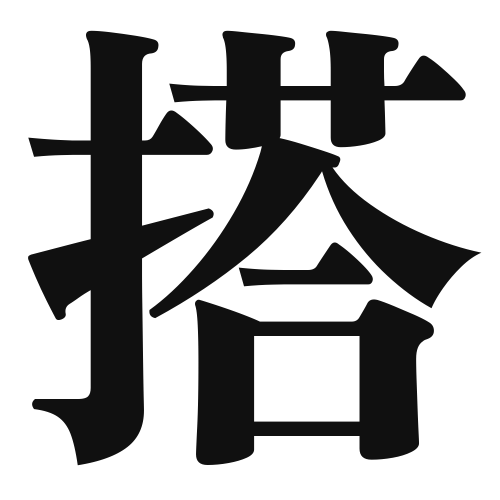1. Overview of Meaning
The kanji “搭” (tō) generally means “to board” or “to embark.” It is often used in contexts related to transportation, such as boarding a ship or an airplane.
2. Formation and Radical
Formation of the Kanji: The kanji “搭” is a phonetic-ideographic character (形声文字). It combines the meaning of “to carry” (the left part, “扌”) with a phonetic component that suggests its pronunciation.
Radical: The radical of “搭” is “扌” (hand), which is commonly associated with actions involving hands or physical activities.
3. Examples of Usage
Common Words and Phrases:
- 搭乗 (とうじょう, tōjō) – boarding (a plane)
- 搭載 (とうさい, tōsai) – loading (cargo)
Example Sentences in Daily Conversation:
- 「飛行機に搭乗する時間は何時ですか?」 (What time is the boarding for the airplane?)
- 「荷物を搭載するのを手伝ってください。」 (Please help me load the luggage.)
4. Synonyms and Antonyms
Similar Kanji:
- 乗 (じょう, jō) – to ride; this kanji is more general and can refer to riding various forms of transportation.
Antonyms:
- 降 (こう, kō) – to descend; this kanji indicates the action of getting off or disembarking from a vehicle.
5. Cultural and Historical Background
Relation to Japanese Culture: The concept of boarding is significant in Japanese culture, especially in the context of travel and hospitality. The act of boarding a train or plane is often associated with the beginning of a journey.
Proverbs and Idioms: There are no specific proverbs that directly use “搭,” but the idea of embarking on a journey is often metaphorically linked to new beginnings and opportunities in Japanese literature.
